Federal Takings Claims and Graveyard Easements
In Knick v. Township of Scott, 138 S. Ct. 1262 (2019), the United Supreme Court overruled one of its cases from 1985 and held that Fifth Amendment takings cases by property owners can be brought directly in federal court without the necessity of bringing an action in state court first. In Knick, the Township of Scott, Pennsylvania, passed an ordinance requiring that all cemeteries be kept open and accessible to the public during daylight hours. Rose Knick owns a ninety-acre rural property in Scott on which was located a small family graveyard. Officials from the Township informed her that she was violating the ordinance by not allowing the public to have access across her property to the graves. Knick filed an action in federal district court asserting that the ordinance constituted a taking under the Fifth Amendment to the United States Constitution. The Fifth Amendment provides in part that the government cannot take property from private citizens without due process of law. Knick claimed that the ordinance constituted a taking under the Fifth Amendment, and filed an action against the Township in the United States District Court under 42 U.S.C. Section 1983. The District Court dismissed her claim under Williamson County Regional Planning Comm’n v. Hamilton Bank of Johnson City, 473 U. S. 172 (1985), which held that property owners must seek compensation under state law in state court before bringing a federal takings claim under §1983. The Third Circuit affirmed. The United States Supreme Court overruled Williamson County’s state litigation requirement, vacated the Third Circuit’s opinion, and remanded the case for further proceedings.
Advocates for the rights of property owners have been working for years on reversing Williamson County. For more on this aspect, see the website of the Pacific Legal Foundation, which represented Knick. Knick will undoubtedly make taking (aka inverse condemnation) cases easier to bring and win since the property owner can now bring an action directly to federal court without having to run the gamut in state court first. The knee-jerk reaction will be to bring a takings action in federal court, but the Mississippi Supreme Court generally has been receptive to takings cases. See State v. Murphy, 202 So. 3d 1243 (Miss. 2016)(affirming jury verdict against the state for taking land to build harbor); Jackson Municipal Airport Authority v. Wright, 232 So. 2d 709 (Miss. 1970)(affirming that navigation easement had been taken). Recent legislation and cases, and the 2011 referendum limiting the state’s eminent domain powers show that Mississippi is a stronghold of the rights of property owners.
One interesting twist on the Knick case is how it might apply to a bill that was introduced in the 2019 Mississippi legislature. Recall that the ordinance passed by the Township of Scott, which gave rise to Ms. Knick’s taking claim, required landowners to give the public access to graveyards on their property. HB 1004 provided that a person who desired to enter someone else’s property for the purpose of visiting a grave, and who was unable to obtain the permission of the owner of the property to enter the property, could file a petition with the chancery court of the county in which the grave is believed to be located to allow the petitioner to enter the property and discover, restore, maintain or visit the grave. Service of process must be made on the owner and all lienholders of record. The court can issue an order allowing the petitioner to enter the property if there are reasonable grounds to believe that a grave is located on the property and that it is reasonably necessary to enter or cross the owner’s land to reach the grave; that the petitioner is a descendant of the deceased or has a special interest in the grave; and that entry on the property will not reasonably interfere with the owner’s enjoyment of the property. The court’s order may, but is not required to, specify the days and times that the petitioner can enter the property, give the petitioner the right to enter the property periodically, specify a reasonable route for the petitioner to take to cross the property, and require the petitioner to post a bond to protect the owner from damages. The court also may, but is not required to, direct the petitioner to pay the owner reasonable damages and costs of the proceeding. Assuming that the court did not require the petitioner to pay compensation to the owner, would the court-ordered access contemplated by HB 1004 be a taking? HB 1004 died in committee in the 2019 legislative session, but could be introduced again in the 2020 session.
Originally published in the July 2019 Newsletter of the Real Property Section of The Mississippi Bar.
This article was written by Rod Clement. To learn more about Rod Clement and his practice visit his LTAMS member profile or firm profile.

